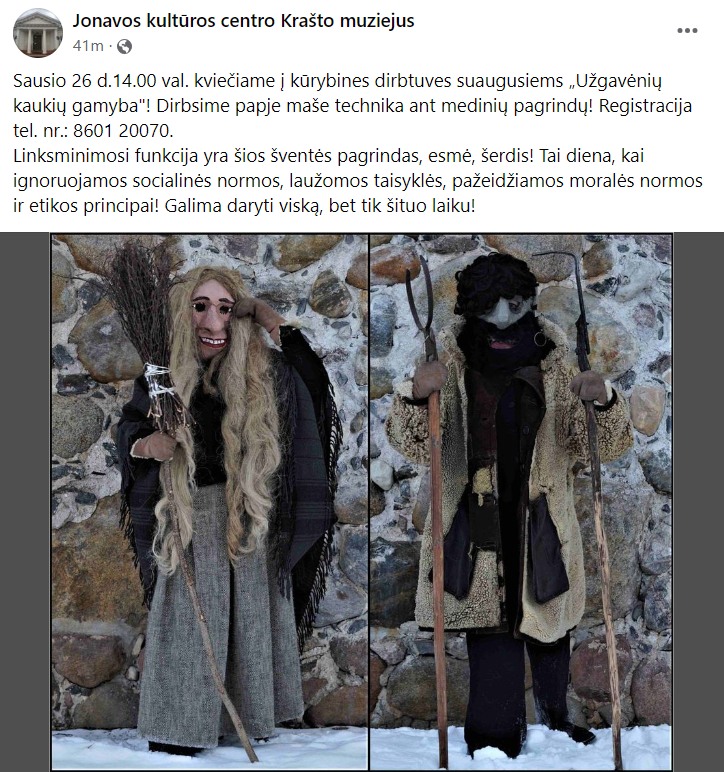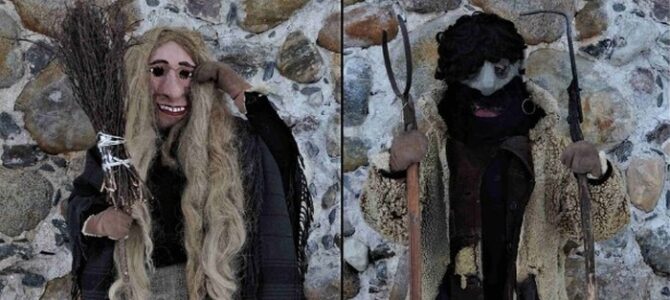The Regional History Museum of the Jonava Cultural Center in Jonava, Lithuania, posted an invitation on January 18 for the public to attend an arts workshop in the run-up to the Lithuanian holiday Užgavėnės, or Shrovetide:

“We invite you to a creative workshop for adults this January 22 at 2:00 P.M. called “Making Užgavėnės Masks!” We’ll use papier-mâché on wooden frames! … The function of having fun is the basis of this holiday, it’s essence and core! This is a day when social conventions are ignored, rules are broken and ethical and moral principles are transgressed! You can do anything, but only during this time!”
Unfortunately traditional masks made and worn on Užgavėnės include grotesque stereotypes of Jews and Roma.
While the Lithuanian Jewish Community respects folklore and tradition, there are limits to everything. While the director and staff of the Jonava Cultural Center’s Regional History Museum might believe the rules of society may be flaunted during Shrovetide, that people may do as they like and ignore morality, this isn’t necessarily legal in a country under the rule of law. Worse, if not for the vigilance of citizens, these alleged truths would have been foisted on young people attending the workshop, and could still be, because the removal of the invitation from social media doesn’t mean the cultural center’s staff have changed their minds. Incidentally, the Jonava Cultural Center is just a few hundred yards from the library which was recently renamed in honor of the late and renowned Litvak writer Grigoriy Kanovitch.
We maintain Užgavėnės should unite people in tolerant fun rather than celebrating ancient and incorrect prejudices and inculcating them in the younger generation.
The LJC will continue to monitor the internet and react to these problems, bringing them to public attention for a possible solution and to insure due respect be paid to all ethnic communities in Lithuania.
We also call upon the Jonava Regional History Museum to invite representatives of the Roma and Jewish communities to come to their town so that we can attempt to counter these old stereotypes together and teach the local community about the traditions of these two communities. This might take the form of baking the traditional Sabbath challa bread or traditonal Litvak bagels, and talking and getting to know one another better.



